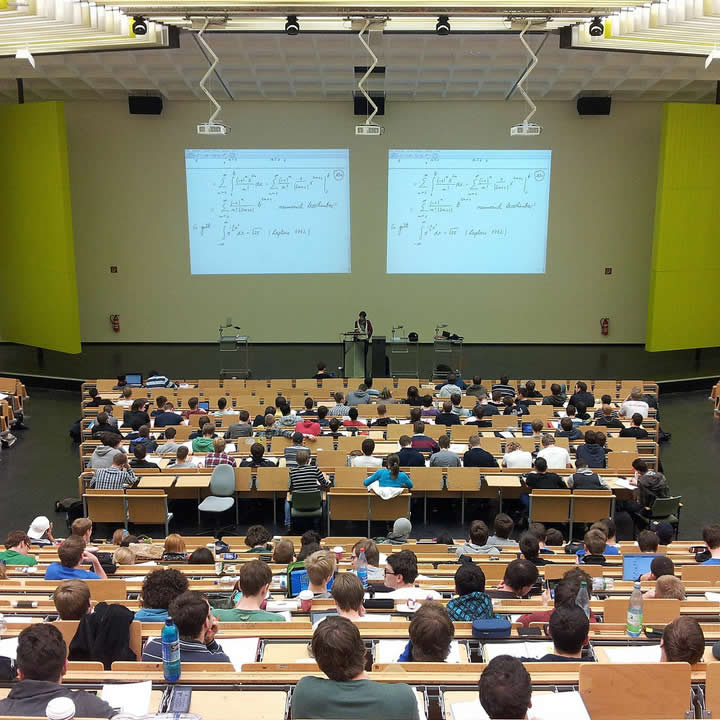The world is becoming a digital place to live, and people at an adequate level should have the skills of digital technologies and use them effectively in business, in various sectors of the economy, particularly in the field of education and science. More than ever before, a key attribute in any activity is access to information that is hosted in relevant open environments and can be accessed from anywhere and at any time, which in turn can be considered as a necessary and sufficient condition for innovation and entrepreneurial activity development.
Therefore, it is right in modern terms to speak about smart education and smart university. The smart university, above all, should be ready to unite with a global informational open educational space, which provides free students and teachers access to world information resources, satisfaction of students’ needs in information products and services, and the effective information interaction of all participants in the educational process. This, in turn, means that there should be a transition from books to interactive content, teachers and students and their competencies should change, a new concept for managing academic and corporate knowledge should be created. Today, many modern educational institutions cooperate with advanced IT companies and create an environment of smart campuses to upgrade not only educational activities but also all the organizational processes.
Smart Campus is a new approach to the organization of the educational process. The point is that when entering the institute, a special device reads information about a student, and the system immediately sends individual reminders to him. These are schedule and posting notes as well as messages from teachers.
Campus buildings are equipped with intelligent cameras that report emergency situations, hooliganism or crisis situations in student behavior. This increases the physical safety of students and teachers.
Smart buildings and advanced technologies can reduce energy and maintenance costs by 10% or more. These solutions help reduce energy consumption, predict and detect malfunctions, reduce accidents, reduce energy costs, and save money.
Technological solutions help to optimize administrative actions and streamline the university’s paperwork. Financial services are also improving. With unified safe payment solutions, students can pay one card for all campus services, such as fees, meals, laundry, textbooks and other materials.
Among the advantages of smart campuses, Pro-Papers highlights the following:
- reducing social tensions and strengthening the practice of conflict-free interaction between students and the administration;
- improving the quality of the educational process through the use of current, modern knowledge and technology, as well as feedback from students and teachers;
- saving resources by converting a number of interactions into electronic form, simplifying electronic interaction procedures and eliminating unnecessary administrative barriers;
- creation of a unified system of students, teachers and administrations electronic interaction;
- maximum transparency and availability of the university;
- the basic management processes transparency, which allows to make the right operational decisions;
- quick and convenient student access to their assessments, scientific, creative and sports results;
- up-to-date information about the university’s activities in real time, including mobile devices;
- an opportunity to create an account in the university’s and campuses social network;
- constant access to electronic library resources, telephone numbers and addresses of faculty members, and staff.
The administration of smart campuses will ask its students to provide some personal information (name, phone number, email address, preferred course of study). In addition, the smart campus collects and stores data on student performance and attendance. How can smart campuses use information about their students?
As a rule, all personal data is processed and stored for a maximum of 12 months in accordance with the internal rules of the smart campus. At the same time, all educational institutions adhere to the Data Protection Act. Based on the conditions of the Law, a university must have one or more of the following reasons for using student personal data:
Contract – your personal information is processed to fulfill contractual obligations to support the services offered to you.
Legitimate interests – to provide students with the best service in the safest and most appropriate way, for example, transfer your data to certain third-party organizations, such as delivery partners.
Legal Obligation – if there is a legal or other legal requirement to provide information. For example, in situations when a university must share your information for law enforcement system’s purposes.
With your permission and/or, if permitted by law, the campus may also use your data for marketing purposes, which may include contacting you by email, phone, text message and / or message with information and news about products and services.
In conclusion, it should be noted that the development of innovations at the university is the key to solving the problem of ensuring the high competitiveness of the university. In many ways, the successes achieved in this direction are related to the fact that the university team trusts the decisions that are made by the university administration and are implemented by the IT service together with the university staff. The human factor is of great importance to achieve the goal. In addition to using modern technology and a large amount of educational data, intelligent campuses also collect and store information about their students. However, at the same time, such information is internal, and all universities must adhere to the Law on the use of personal data. Therefore, modern students have no reason to worry about personal data, so they have nothing to do except to dive into school and use all the advantages of intelligent campuses.

